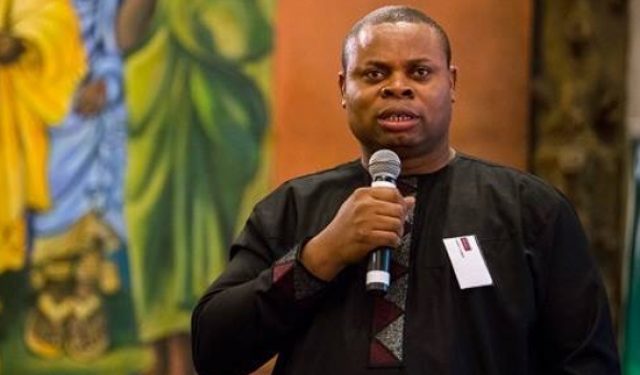
Audio By Carbonatix
The founder and President of IMANI Africa, Franklin Cudjoe, has criticised the government for retaining a number of taxes, including the COVID-19 levy despite widespread calls from the business community for a rethink.
According to Cudjoe, Ghanaians are struggling under the current high tax regime imposed by the Akufo-Addo-led administration.
He expressed his concerns over the government's decision during an interview with Citi FM on Saturday, July 27.
He emphasised that the government should have listened to the public outcry and taken the opportunity to eliminate certain taxes, such as the COVID-19 levy, to ease the financial burden on citizens.
Cudjoe pointed out that the business community has been vocal about the negative impact of these taxes, urging the government to take the concerns into account.
He argued that the government's refusal to scrap the COVID-19 levy indicates a disconnect with the needs and struggles of ordinary Ghanaians.
Furthermore, Mr Cudjoe lamented the lack of visible infrastructure development despite the numerous taxes imposed by the government.
He highlighted that, despite the high tax revenues, there has been little progress in improving public infrastructure, which raises questions about the effective utilization of these funds.
Mr Cudjoe called for the government to reassess its tax policies and prioritize the welfare of Ghanaians.
He urged the administration to consider the long-term economic impact of maintaining high taxes and to take proactive measures to support both individuals and businesses in the country.
“Look at the haemorrhage we have been experiencing in terms of the way taxes received are wasted. So, there’s a certain anomaly to think that it’s only the government that can deliver development to persons and individuals. I’m not too sure that we should be conceptualising the essence of government…In the face of the wanton distraction that has happened to COVID-19 money, you recall that there was a special audit done for all COVID-19 received funds."
“I disagree fundamentally with the purposes of taxation, yes, some amount of taxation should go to the government for driving infrastructural-related purposes. Even then, we should have the private sector being part of it… I have a challenge with the COVID-19 tax and I think it is important that even though we are under economic challenges, largely imposed by our own doing. This whole conversation about COVID-19 tax is quite unnerving.”
Latest Stories
-
OSP goofed and must tell Ghanaians the truth – Frank Davies reacts to Red Notice decision
6 minutes -
Today’s Front Pages: Monday, February 16, 2026
21 minutes -
‘Victory in 2028 won’t be gifted to us’ – Bawumia urges discipline, unity in NPP
48 minutes -
Lordina Mahama announces completion of 3 modern maternity and children’s wards
51 minutes -
IOM, Fidelity Bank Ghana Ltd partner to boost financial literacy for Ghanaian returnees
54 minutes -
There is nothing wrong with being arrested as a politician – Afenyo-Markin urges NPP unity
56 minutes -
Fact-based response to misleading narratives on JG Resources Ltd’s gold trade dispute
59 minutes -
GNFS prevents petrol tanker explosion at Aveme Junction
1 hour -
Hindsight: Garbage in, garbage out
1 hour -
Gender Ministry condemns alleged digital sexual exploitation by foreign national, vows legal action
2 hours -
‘We realised the mess left behind’ – Asiedu Nketia blames Akufo-Addo gov’t for cocoa crisis
2 hours -
Suspect in Zebilla police robbery and murder arrested
2 hours -
‘I am safe and recovering well’ – Mohammed Sukparu reassures public after accident
2 hours -
Bawumia thanks liaisons nationwide
2 hours -
Africa must industrialise through green transition – AGN Chair
2 hours

